Children of the Corn (1984)
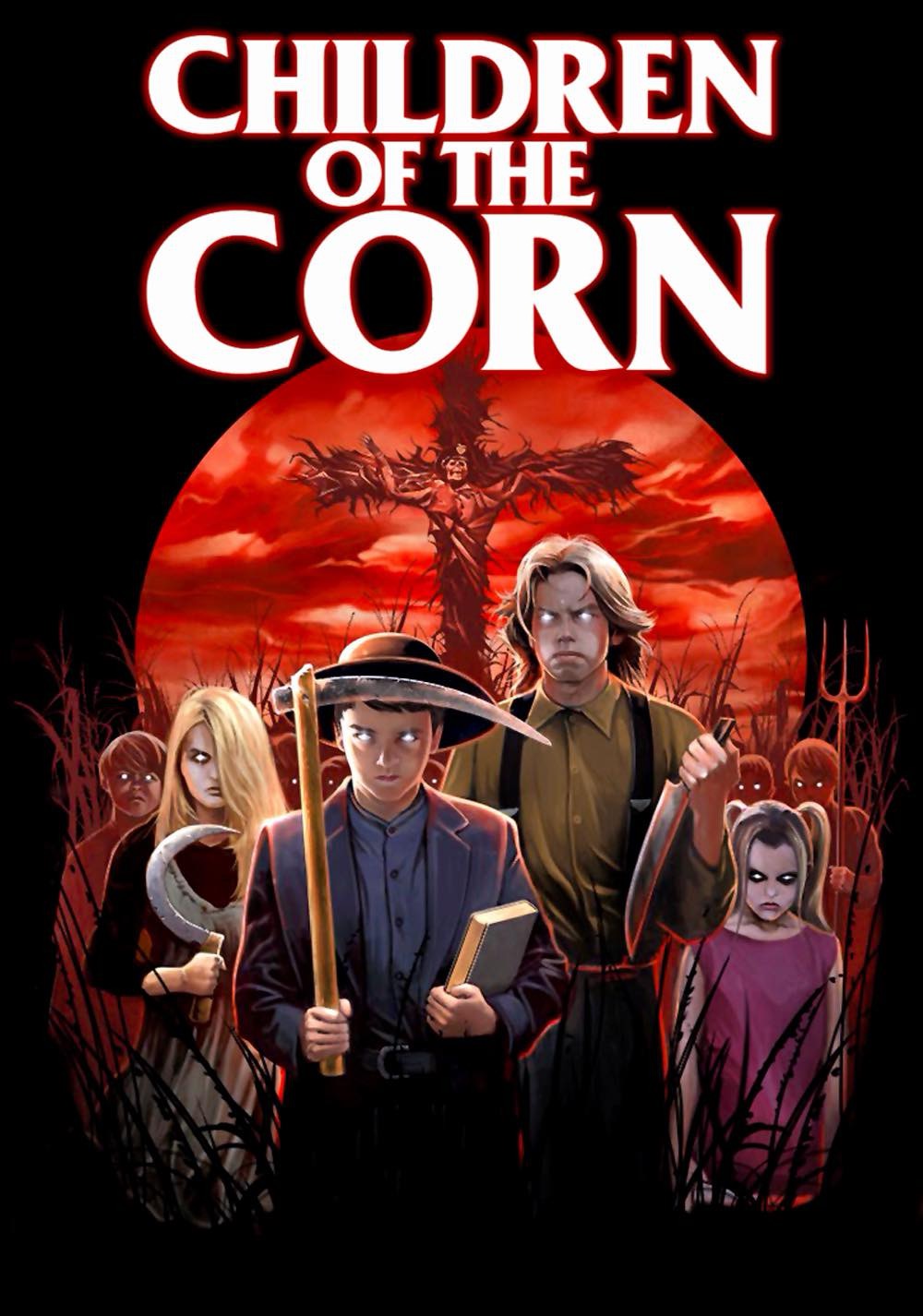
Children of the Corn (1984), directed by Fritz Kiersch and based on Stephen King’s short story, is a cult classic horror film that delves into themes of religious fanaticism and rural isolation. While it has gained a following for its eerie concept and memorable moments, the movie is often criticized for its dated effects, uneven pacing, and deviations from King’s original work.
Suggested video for you:
Plot and Structure
The story is set in the small town of Gatlin, Nebraska, where all the adults have been killed by a cult of children who worship a mysterious deity known as “He Who Walks Behind the Rows.” A couple, Burt (Peter Horton) and Vicky (Linda Hamilton), stumble upon the town while driving through rural Nebraska and quickly become entangled in the children’s sinister plans.
The premise is compelling and taps into primal fears about isolation, fanaticism, and the corruption of innocence. However, the execution feels somewhat thin, as the film struggles to maintain tension throughout its runtime. The pacing is inconsistent, with some moments of genuine suspense undermined by slow-moving sequences or lackluster action. The buildup to the climax is slow, and while it has a creepy atmosphere, the finale feels rushed and underwhelming, especially in its handling of the supernatural elements.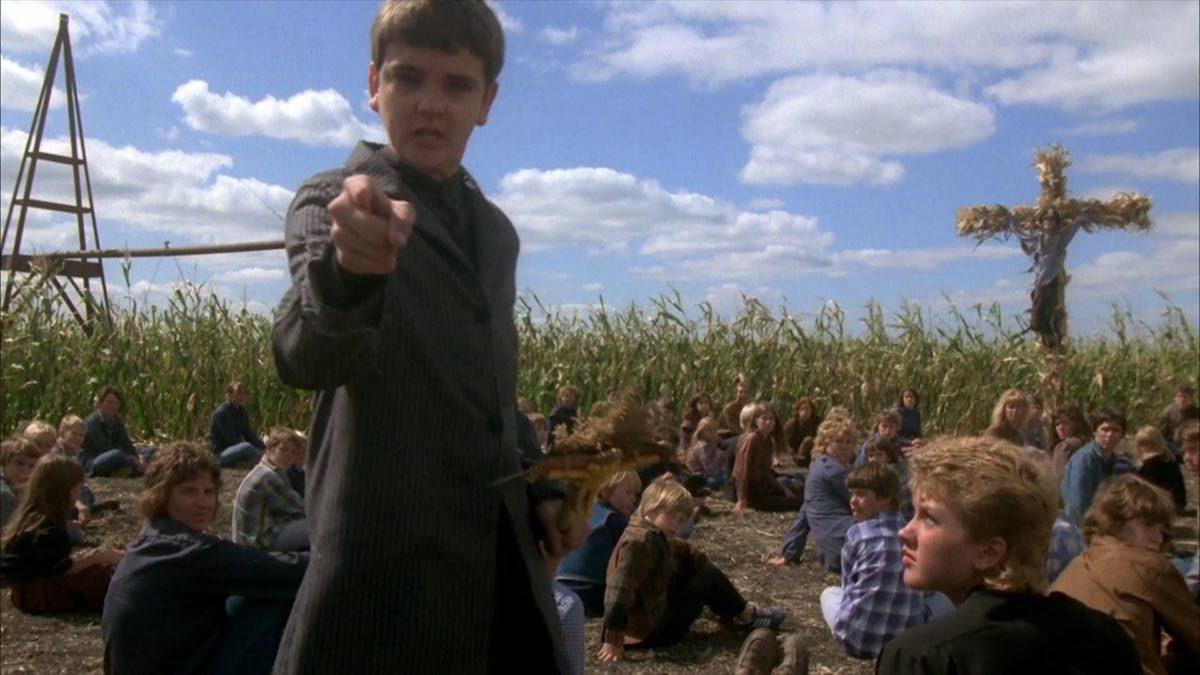
Atmosphere and Visuals
One of the film’s strengths is its eerie atmosphere. The desolate cornfields, with their vast, oppressive expanse, serve as an effective backdrop for the story’s horrors. The imagery of children patrolling the town, religious symbols, and scarecrows in the fields adds to the unsettling tone. The isolation of Gatlin and the rural landscape creates a sense of dread that lingers throughout the film.
However, the special effects, particularly the portrayal of the supernatural entity, have not aged well. The climax, where “He Who Walks Behind the Rows” is revealed, relies on outdated visual effects that diminish the film’s tension. What could have been a more terrifying, ambiguous threat instead comes across as cheesy by modern standards.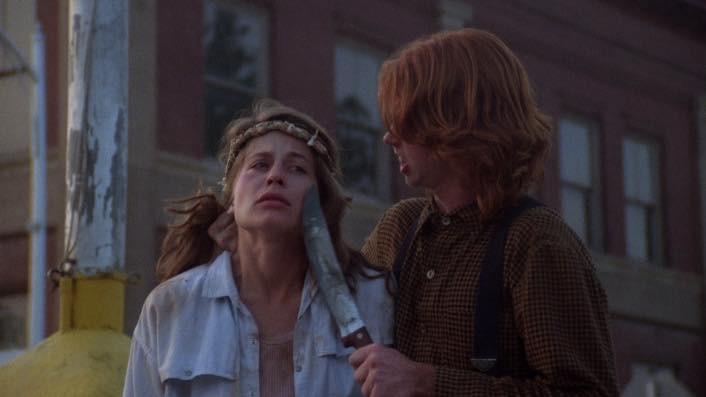
Performances
The performances in Children of the Corn are a mixed bag. Peter Horton and Linda Hamilton deliver decent performances as the protagonists, though their characters are somewhat underdeveloped. Horton’s portrayal of Burt is serviceable as the rational, logical adult figure, while Hamilton, in an early career role before her Terminator fame, brings a sense of strength to Vicky, despite her limited screen time in the second half.
The real standouts, however, are the child actors, particularly John Franklin as Isaac and Courtney Gains as Malachai. Franklin’s performance as Isaac, the eerie, child preacher who leads the cult, is unsettling, with his strange, otherworldly appearance and chilling delivery of lines. Gains plays the enforcer, Malachai, with a wild-eyed intensity that adds to the film’s sense of menace.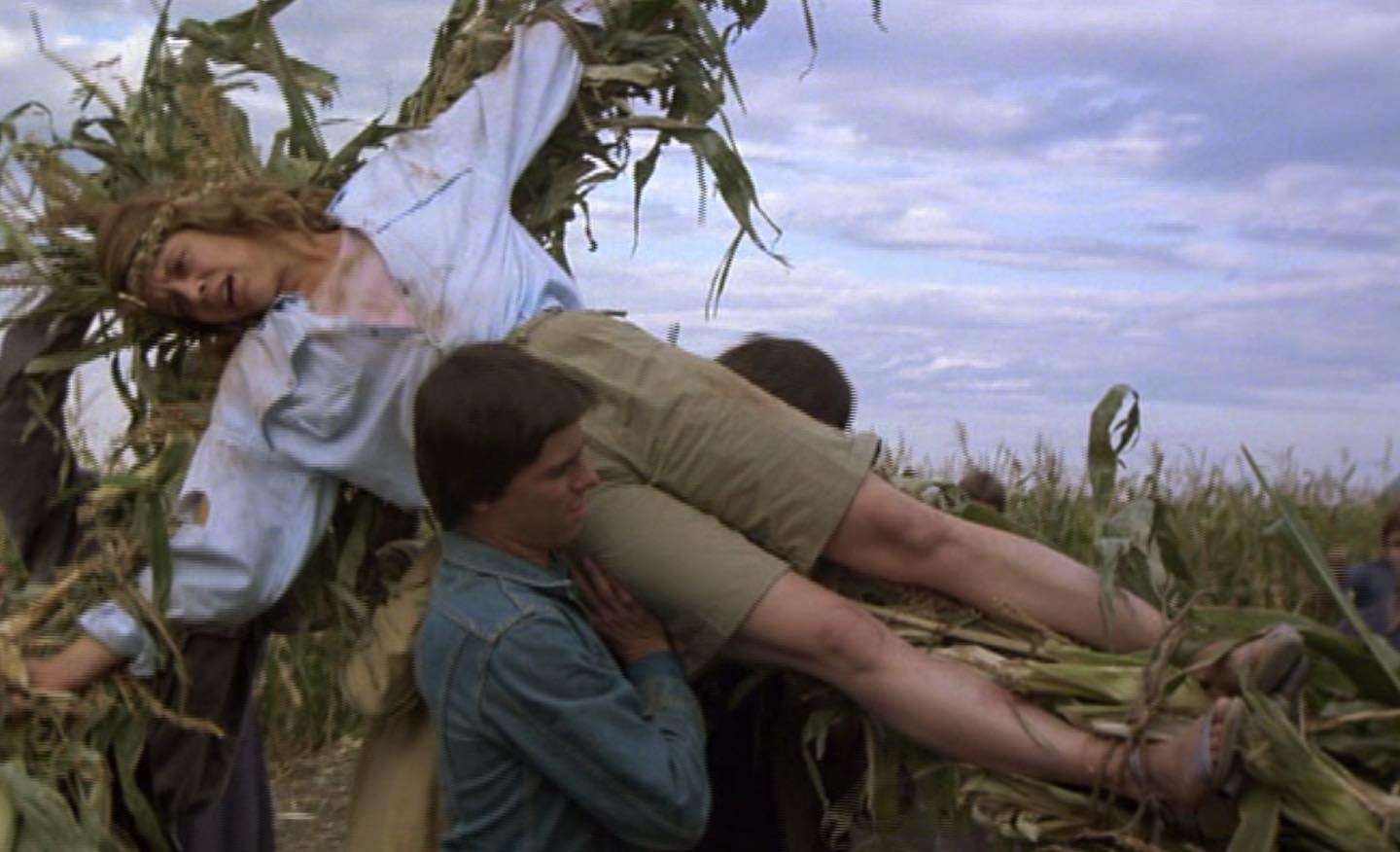
Themes and Tone
At its core, the film touches on themes of religious fanaticism, blind faith, and the power dynamics within cults. The idea of children as both the perpetrators and victims of a twisted belief system is inherently disturbing. However, the film only scratches the surface of these themes, opting for straightforward horror rather than a deeper exploration of the psychological or sociopolitical implications.
The tone oscillates between suspenseful horror and campy 80s genre fare. Some of the more serious, atmospheric moments are undercut by dialogue or scenes that feel unintentionally humorous or over-the-top. This inconsistency in tone may appeal to fans of B-movie horror, but it detracts from the film’s potential to be a truly terrifying adaptation of King’s work.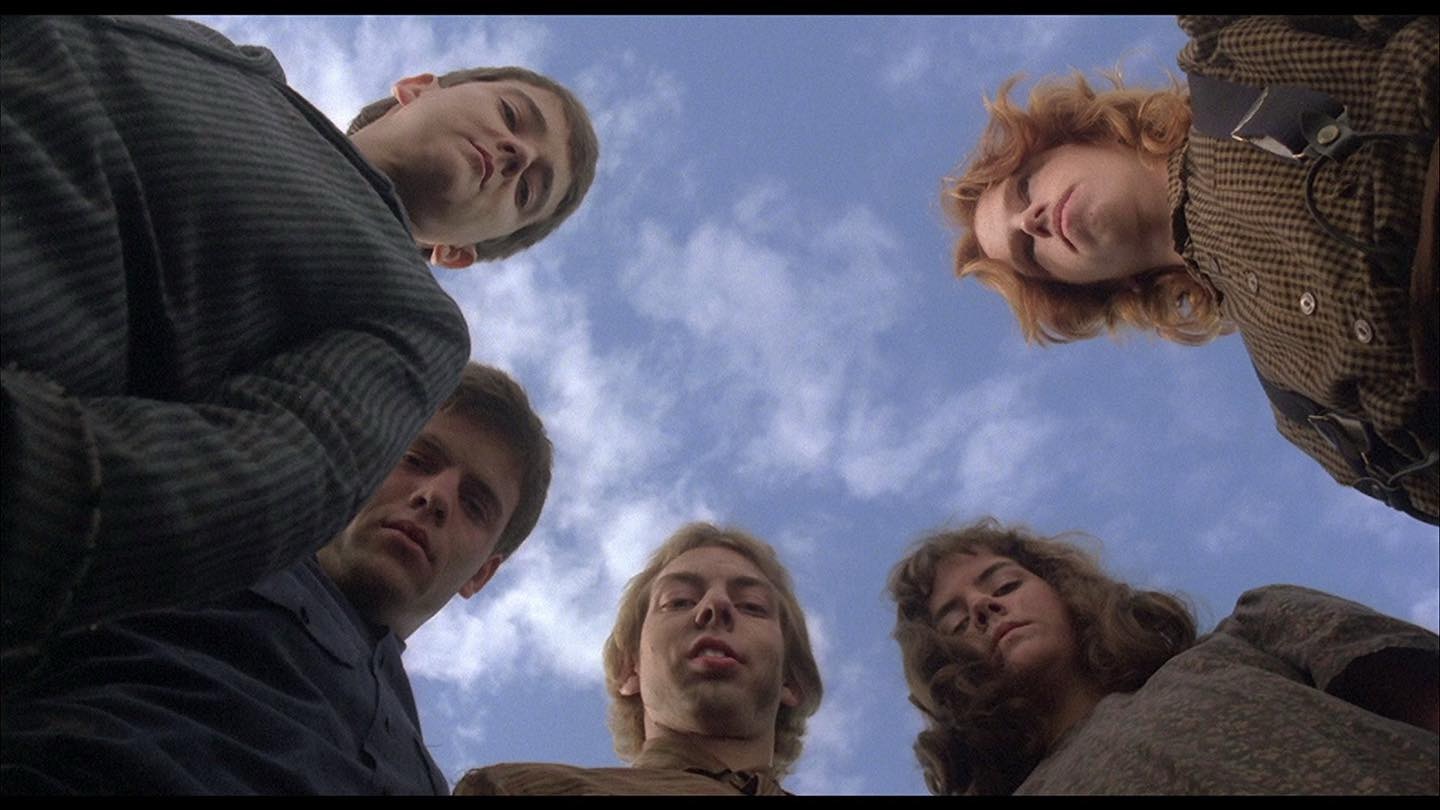
Final Thoughts
Children of the Corn has earned its place as a cult horror classic, but it is a film that feels trapped in the conventions of 80s low-budget horror. While the premise is intriguing and the setting is effectively eerie, the film struggles with pacing, underwhelming special effects, and inconsistent tone. Its memorable villains and eerie concept help elevate it, but the movie ultimately falls short of its full potential.











